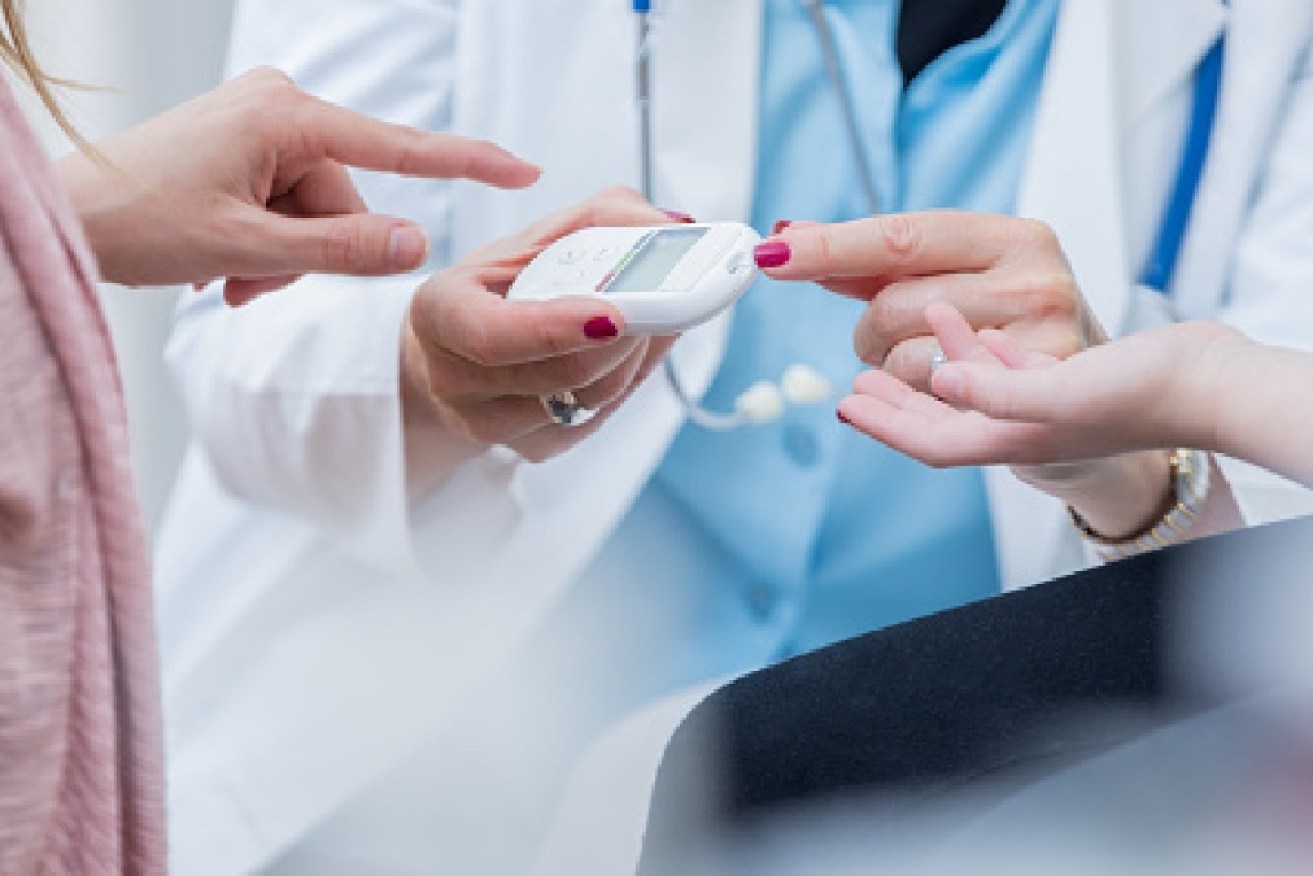Mild COVID-19 linked to a ‘significantly higher risk’ for type 2 diabetes


Frequent urination, thirst and fatigue are symptoms of type 2 diabetes. Photo: Getty
German researchers have found that adults who experience a mostly mild case of COVID-19 appear to have a significantly higher risk of developing type 2 diabetes.
If confirmed, these results “indicate that diabetes screening in individuals after recovery from mild forms of COVID-19 should be recommended”.
While it’s been accepted that people with type 2 diabetes are at high risk of suffering a severe case, evidence that the virus causes diabetes has been accumulating since the early days of the pandemic.
In July 2020, an international group of 17 leading diabetes experts wrote to the New England Journal of Medicine advising that COVID-19 was triggering type 2 diabetes in previously healthy people.
They also noted that it was causing complications in pre-existing diabetes.
This potential link between the coronavirus and diabetes is being investigated in a number of ongoing studies connected to ‘long COVID’.
How did they make the link?
It wasn’t out of the blue.
New-onset hyperglycaemia and insulin resistance had been reported in COVID patients with no prior history of diabetes.
Studies found, in some cases, that inflammation caused by the coronavirus damaged beta cells in the pancreas that produce and release insulin.
The inflammation was found to kill these cells or changed the way they work. This led to acute hyperglycaemia, or high blood glucose.
But it was also found that tissues became “less reactive to insulin due to inflammation in the body”. This, too, caused spikes in blood sugar.
And researchers wondered if sedentary lifestyles brought on by lockdowns were also to blame.
All of which was highly suggestive, but it was unclear whether these metabolic changes were temporary “or whether individuals with COVID-19 may be at increased risk of developing chronic diabetes”.
A great question, but there was a lack of studies investigating the incidence of diabetes after recovery from COVID in mild cases.
This is where researchers from the German Diabetes Centre at Heinrich Heine University, Dusseldorf, stepped up.
The study
The researchers analysed electronic health records from the ‘Disease Analyzer database’, which included information on 8.8 million adults who visited 1171 general and internal medicine practices across Germany between March 2020 and January 2021.
This included 35,865 patients who were diagnosed with COVID-19.
The incidence of diabetes after having the virus was compared with a matched control group of people who were diagnosed with an acute upper respiratory tract infection (AURI) that wasn’t COVID.
In other words, they compared COVID-19 patients with people suffering from symptoms similar to a mild dose but were actually caused by other viruses, and were sick within the same time frame.
During an average follow-up of 119 days for COVID and 161 days for AURI, the numbers of hospitalisations were similar in both groups.
The researchers found that new cases of type 2 diabetes were more common in patients who tested positive for the coronavirus than those with an acute AURI.
In simple terms, “this means that the relative risk of developing type 2 diabetes in the COVID group was 28 per cent higher than in the AURI group”.
What the authors suggest
The authors suggest the COVID-19 infection may be caused by ongoing effects of the immune system in overdrive. As the patient recovers, the attack-dog immune system damages the pancreas, affecting insulin production and leading to high blood sugar.
This was the phenomena observed in some patients that first led to the study.
But the scientists also suggest that some patients were already at risk of developing type 2 diabetes, and that the punishing effects of the virus tipped them over the edge.
As lead author Professor Wolfgang Rathmann describes it:
“COVID-19 infection may lead to diabetes by upregulation of the immune system after remission, which may induce pancreatic beta cell dysfunction and insulin resistance, or patients may have been at risk for developing diabetes due to having obesity or prediabetes, and the stress COVID-19 put on their bodies speeded it up.”
Professor Rathmann said further follow-up was needed “to understand whether type 2 diabetes after mild COVID-19 is just temporary and can be reversed after they have fully recovered, or whether it leads to a chronic condition”.
Type 2 diabetes is not likely to be a problem for the vast majority of people who have mild COVID-19, but the authors recommend that anyone who has recovered from the virus be aware of the warning signs and symptoms.
These include things such as fatigue, frequent urination, and increased thirst.
If this sounds like you, visit your GP sooner rather than later.








